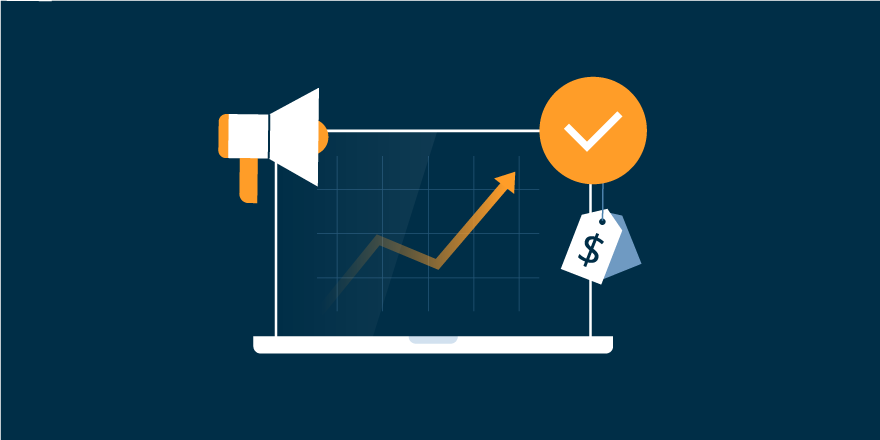
In the current digital environment, companies are increasingly adopting marketing strategies based on data that ensure quantifiable outcomes. Performance marketing meaning is one such effective method. However, what is the meaning of performance marketing, and in what ways does it affect contemporary businesses? This blog will delve into the meaning of performance marketing, its main goals, how it differs from SEO, and its function in digital advertising.
What is the Performance Marketing Concept?

Performance marketing is a results-oriented digital marketing approach in which advertisers incur costs solely when particular actions—like clicks, conversions, or sales—are achieved. Performance marketing meaning differs from conventional advertising models, which typically require advance payments without guarantees of returns, by ensuring that companies pay solely for concrete results.
Key Components of Performance Marketing:
- Affiliate Marketing – Businesses collaborate with affiliates who promote their products in exchange for a commission on each sale or conversion.
- Pay-Per-Click (PPC) Advertising – Advertisers pay only when users click on their ads, commonly used in Google Ads and Facebook Ads.
- Social Media Advertising – Platforms like Instagram, LinkedIn, and TikTok offer performance-based ad models where businesses pay for engagement or conversions.
- Native Advertising – Sponsored content blends with organic content to drive engagement and conversions.
- Influencer Marketing – Businesses work with influencers who are compensated based on actual conversions or measurable engagement.
Performance marketing meaning is especially effective due to its focus on metrics like cost-per-acquisition (CPA), return on ad spend (ROAS), and conversion rates, making it a favored option for brands aiming to optimize their marketing budgets.
Is Performance Marketing the Same as SEO?
Performance marketing and Search Engine Optimization (SEO) are often confused by businesses, but they are fundamentally distinct strategies.
Key Differences Between Performance Marketing and SEO:
| Feature | Performance Marketing | SEO |
| Goal | Immediate conversions and measurable results | Organic traffic and long-term growth |
| Cost Structure | Pay-per-click, impression, or conversion | Free, but requires investment in content and optimization |
| Timeframe | Short-term, immediate impact | Long-term requires patience |
| Measurement | Direct tracking of ROI and conversions | Measured through organic rankings and traffic |
| Platform | Paid channels like Google Ads, Facebook Ads | Organic channels like Google Search |
SEO emphasizes the creation of quality content and optimization to cultivate organic traffic over the long term, whereas performance marketing yields quick results via paid campaigns. These two approaches can work together, with SEO generating free traffic and performance marketing providing a consistent flow of paid leads.
What is the Job of Performance Marketing?
A performance marketer’s role is to drive measurable business outcomes by optimizing digital advertising strategies. Their responsibilities include:
1. Campaign Strategy and Execution
- Developing targeted ad campaigns across various digital platforms.
- Choosing the right channels based on audience behavior and marketing goals.
2. Data Analysis and Optimization
- Tracking campaign performance using tools like Google Analytics, Facebook Business Manager, and SEMrush.
- Analyzing key performance indicators (KPIs) such as cost-per-click (CPC), conversion rates, and return on ad spend (ROAS).
- A/B testing different ad creatives, copy, and targeting strategies.
3. Budget Management
- Allocating budgets efficiently to maximize return on investment.
- Ensuring ad spending aligns with business objectives and minimizes wasted costs.
4. Audience Targeting and Retargeting
- Using advanced audience segmentation to reach potential customers.
- Implementing retargeting strategies to convert visitors who previously interacted with ads but did not complete a purchase.
A successful performance marketer leverages data-driven insights to create campaigns that generate high ROI while continuously optimizing strategies for better results.
What is the Objective of Performance Marketing?
Performance marketing meaning is designed to achieve specific business goals, focusing on measurable outcomes rather than just brand visibility. Below are some core objectives:
1. Maximizing ROI (Return on Investment)
Since businesses only pay for results, the primary goal is to maximize revenue while minimizing costs. Performance marketing ensures that every dollar spent contributes to measurable conversions.
2. Driving Conversions and Sales
Whether it’s an eCommerce store looking for more purchases or a SaaS company aiming for software sign-ups, conversions are a key objective. Performance marketing strategies are tailored to generate leads and boost sales efficiently.
3. Enhancing Customer Acquisition
Performance marketing helps businesses acquire high-intent customers by targeting users based on interests, demographics, and behaviors.
4. Scaling Business Growth
With performance marketing, businesses can scale their advertising efforts quickly based on real-time data, expanding into new markets with minimal risk.
5. Improving Brand Awareness with Data-Driven Insights
While the primary focus is conversions, performance marketing also enhances brand awareness by targeting the right audience with relevant ads.
Conclusion
For companies that want to realize scalable, data-driven, and result-oriented advertising, performance marketing is revolutionary. Brands can harness performance marketing to achieve higher ROI, boost conversions, and refine their marketing budgets by grasping its significance, purpose, and role.
In contrast to conventional marketing, performance marketing guarantees that companies incur costs solely for real outcomes, rendering it a very efficient strategy in the current cutthroat digital environment. No matter if you own a small business or work as a digital marketing expert, adding performance marketing to your strategy can result in quicker development and increased profit margins.
Are you prepared to tap into the potential of performance marketing? Today, let’s talk about your business objectives and develop a marketing plan focused on results!
FAQs
Q1: In what ways does performance marketing differ from traditional marketing?
A: While traditional marketing aims to create widespread brand awareness, performance marketing relies on data and measurable outcomes to guarantee that businesses pay solely for conversions.
Q2: Is it possible for SEO and performance marketing to collaborate?
A: Indeed! SEO is centered on organic growth over the long term, while performance marketing provides immediate results via paid campaigns. Using both strategies in conjunction can optimize traffic and conversions.
Q3: Which platforms are most effective for performance marketing?
A: The choice of the best platforms, such as Google Ads, Facebook Ads, Instagram Ads, LinkedIn Ads, and TikTok Ads, depends on your target audience.
Q4: How do I track the success of a performance marketing campaign?
A: Use analytics tools like Google Analytics, Facebook Business Manager, and heatmaps to monitor metrics such as click-through rate (CTR), cost per acquisition (CPA), and return on ad spend (ROAS).
Q5: Is performance marketing suitable for small businesses?
A: Absolutely! Small businesses can set flexible budgets, target the right audience, and only pay for actual results, making it a cost-effective strategy.
By leveraging performance marketing, businesses can achieve higher efficiency, better targeting, and increased revenue while maintaining control over advertising costs. Start implementing a performance-driven strategy today and watch your business grow!